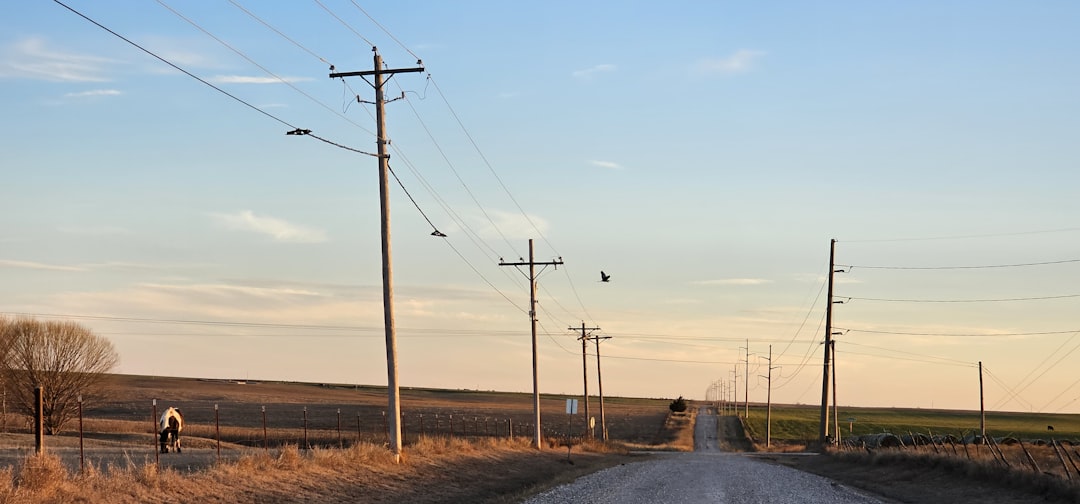Route 66, renowned as "The Main Street of America," attracts global travelers with its nostalgic charm and diverse experiences. However, tourism scams, including misleading businesses and spam calls from attorneys, pose a threat to visitors. Oklahoma-based legal professionals specialize in combating these issues, protecting tourists, and ensuring authentic experiences. By leveraging technology and education, local businesses and law enforcement work together to maintain the highway's integrity against modern-day scammers, making Route 66 a safer destination for all.
“Route 66, an iconic American highway, continues to attract tourists seeking its historic charm and unique experiences. However, this popularity has led to a rise in tourism-related scams targeting unsuspecting visitors. This article explores the vibrant businesses along Route 66 that are fighting back against these deceptive practices. From understanding common scams to leveraging technology, local entrepreneurs are empowering both themselves and travelers. Additionally, we delve into legal protections, highlighting the role of a spam call attorney in Oklahoma, ensuring a safer journey for all.”
Understanding Route 66 and Its Appeal to Tourists

Route 66, often dubbed “The Main Street of America,” is an iconic highway that has captivated travelers for decades. Its allure lies in the promise of a nostalgic journey through small towns and breathtaking landscapes, offering a stark contrast to modern urban centers. For tourists, it represents a chance to experience authentic Americana and uncover hidden gems along the way. This historic route has become a top destination for road trip enthusiasts, attracting visitors from around the globe.
The appeal of Route 66 is deeply rooted in its rich history, with many landmarks and attractions that tell stories of the past. From classic diners and motels to vintage gas stations, it evokes a sense of nostalgia and adventure. However, as popularity surges, so do potential scams and misleading practices targeting unsuspecting tourists. This is where businesses along Route 66 play a vital role, not only in providing authentic experiences but also in safeguarding travelers from fraudulent activities, including spam calls and deceptive marketing tactics, especially with the help of legal professionals in Oklahoma dedicated to consumer protection.
Common Tourism-Related Scams Along Route 66

Route 66, often called the “Mother Road,” attracts tourists from all over seeking a taste of America’s classic road trip experience. However, this influx brings about various challenges, including an increase in tourism-related scams. Common schemes involve misleading information, overpriced merchandise, and even fraudulent services. For instance, some businesses might lure visitors with exaggerated claims or fake reviews, leading to subpar experiences and financial losses.
Another prevalent scam involves spam calls and deceptive marketing tactics. Unscrupulous operators target unsuspecting travelers with phone calls promising exclusive deals or discounts on attractions, accommodations, or car rentals. These offers are often too good to be true, designed to trick people into providing personal information or making impulsive decisions. A spam call attorney in Oklahoma may even suggest legal action against these scammers, but such threats should be taken with caution and verified through official channels first.
The Role of Technology in Facilitating Scams

Technology has played a significant role in the rise of tourism-related scams along iconic Route 66. With advancements in communication, scammers can now reach potential victims on a global scale, including those visiting Oklahoma’s historic highway. Spam calls and text messages targeting visitors with false promises or urgent requests for financial assistance are common tactics used by these unscrupulous individuals. A spam call attorney in Oklahoma might be necessary for those who fall victim to such schemes.
Social media platforms and online reviews also contribute to this issue, as scammers monitor popular destinations like Route 66, waiting to exploit unsuspecting travelers. They may create fake business listings or manipulate existing ones to lure tourists into paying for non-existent services or overpriced accommodations. Staying informed, verifying information through official channels, and being cautious when sharing personal details online are essential measures to combat these modern-day scams.
How Local Businesses Are Fighting Back Against Scams

In response to the surge in tourism-related scams along Route 66, local businesses are taking proactive measures to protect their customers and preserve the integrity of their community. Many establishments have implemented robust security systems, including advanced phone filters that block spam calls, ensuring a safer experience for visitors. Some businesses even collaborate with local law enforcement to stay ahead of fraudulent activities.
Additionally, these entrepreneurs are leveraging technology by offering digital resources and educational materials to help tourists avoid common scams. They organize workshops, distribute informative brochures, and maintain online platforms where people can share their experiences and warnings. By fostering a culture of awareness, these Route 66 businesses aim to combat scams effectively while promoting responsible tourism.
Legal Protections for Businesses and Visitors: The Spam Call Attorney in Oklahoma

In the vibrant landscape of Route 66, where businesses thrive on welcoming visitors from all corners, a silent menace lurks: tourism-related scams. These deceptive practices can leave both business owners and unsuspecting travelers vulnerable. However, in Oklahoma, there’s a crucial ally fighting against this issue—the spam call attorney. This legal expert specializes in protecting not just consumers but also small businesses that form the heart of Route 66’s tapestry.
By tackling spam calls and text messages that often prey on tourists, these attorneys ensure that visitors enjoy their experience without the worry of falling victim to fraudulent schemes. They provide a vital service, educating both parties on legal protections and empowering them to navigate this modern-day enigma. In terms of specific strategies, they employ aggressive legal measures to stop scammers, holding them accountable for their actions, and fostering a safer environment for businesses and tourists alike along the iconic Route 66.






